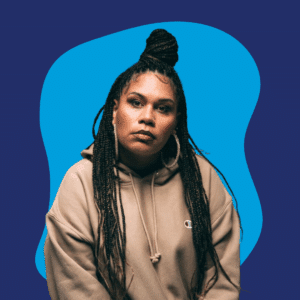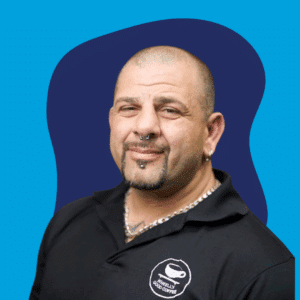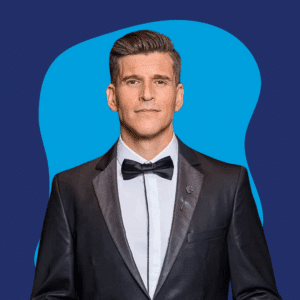When we hear the words ‘they have experienced addiction’, the image that may come to mind is often shaped by stigma, built over years through policy, media, and language. Frequently, it’s a one-dimensional picture, overshadowed by misconception and judgement.
But the face of addiction is far more complex, and far more hopeful. It can be the face of someone with a thriving career, a deep passion for life, and a commitment to health and growth. Addiction is not the end of a person’s story. It’s a chapter, one that, with the right support, can lead to profound transformation.
In this article, we share the stories of five influential Australians who have faced addiction and emerged with resilience, purpose and hope. Each journey is marked by both challenges and triumphs, setbacks and courage. Together, they remind us that recovery is rarely a straight path, but it is always a path worth walking.
Barkaa

Her journey toward recovery was shaped by motherhood, connection to culture, and creative expression. Embracing her identity as a First Nations woman became central to her healing. Through music, she found a way to process pain and reclaim power. Barkaa has said that rapping gave her a sense of purpose, helping her break free from patterns that once seemed inescapable.
Now celebrated as one of Australia’s most influential hip hop artists, Barkaa uses her voice to speak truth to power. She is also a passionate advocate for prison reform, youth justice, and First Nations empowerment.
Simon Fenech

What followed was years of addiction, criminal activity, and prison. But eventually, Simon found a way forward. He entered recovery and began using his lived experience to help others. Today, he works in rehabilitation and reintegration, supporting people who are facing the same challenges he once did.
Emily Weir

Eventually, she made the brave decision to stop drinking and seek support. In interviews, she’s talked about how sobriety has helped her reconnect with her passion, her mental health, and her sense of self.
Emily’s honesty helps break down the stigma that still surrounds addiction, especially for women in the public eye. Her journey is one of self-acceptance and strength.
Geoff Huegill

What followed was a slow, difficult journey of healing. Geoff has shared that asking for help was one of the hardest things he ever did. His story is a powerful reminder that addiction and mental health challenges can affect anyone, and that true strength is found not in avoiding struggle, but in surviving it.
Today, Geoff uses his experience to speak openly about mental health, addiction, and the importance of finding purpose beyond pain.
Osher Günsberg

Osher has spoken about how his relationship with alcohol affected his mental health and sense of self. Eventually, he made the decision to stop drinking, a choice he describes as life-changing.
In speaking openly about his recovery, Osher has helped normalise conversations around mental illness and addiction.
At Sir David Martin Foundation, we believe in hope, healing, and second chances. It is important to celebrate and share stories of success, like those above, and begin to reshape some of the stigma associated with substance addiction. Whether a young person is taking their very first steps toward change or working hard to maintain their recovery, they deserve support that sees their potential.








